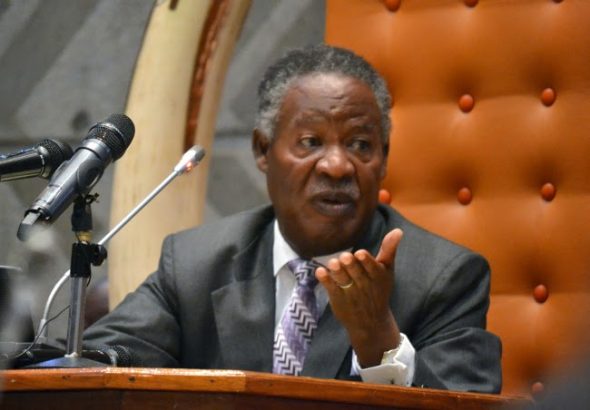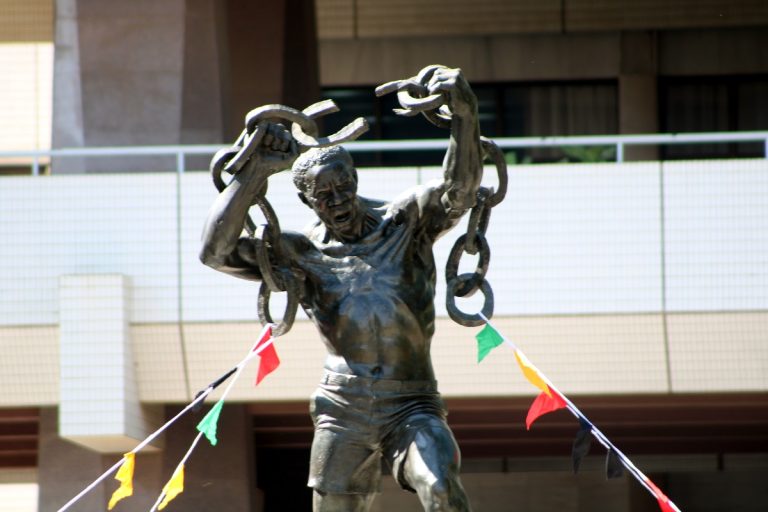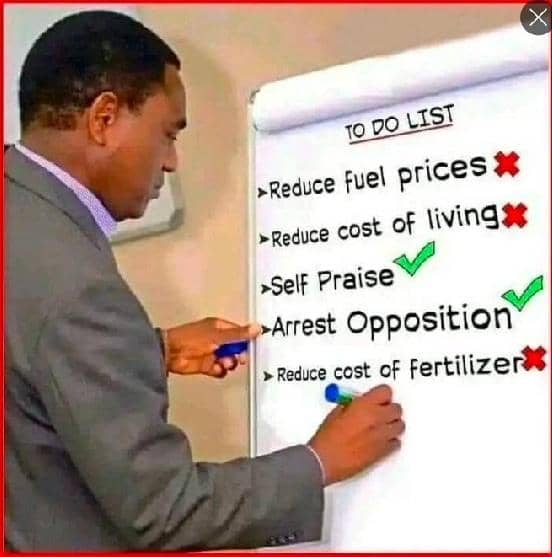
President Nelson Mandela formed a unity government after apartheid ended in 1994.
South Africa has seen a seismic political shift, following the decision of the ANC and DA to form a coalition government.
Lusaka, June 14 [BBC] – A coalition deal has been confirmed that will see Cyril Ramaphosa re-elected as president. The leader of the DA, the second-largest party, calls the deal a ‘new chapter’ for the country.
And here are the other major happenings that have so far taken place!
◾The ANC says other parties are looking at the agreed document that’s being called the ‘statement of intent’.
◾The new MPs have been sworn in after the 29 May election.
◾This was when the African National Congress lost its majority for the first time in 30 years. The outcome forced the party into coalition talks.
◾The MPs are expected to elect the president following the election of ANC’s Thoko Didiza as speaker of the National Assembly, to be followed by the election of the deputy speaker of Parliament. Thoko Didiza got 284 votes ahead of the EFF’s Veronica Mente who got 49 votes.
Also Read: “There is only one good – Knowledge, and one evil – Ignorance!” – Socrates.
Acquiring knowledge empowers us to pursue the ultimate goal in life: fostering virtue, allowing us to contribute positively to society and master our own desires.
As part of the ANC-DA deal, the two parties agreed to share the roles of speaker and deputy speaker between them. The full implications of that can now be seen in the nominations for deputy speaker. Two candidates put forward by MPs are Annelie Lotriet – DA and Vuyo Zungula – African Transformation Movement (ATM). The ATM is part of a group that is opposed to the coalition government. Proceedings have now been suspended to prepare the ballot papers.
◾The party that came third in the poll – ex-President Jacob Zuma’s uMkhonto weSizwe – has chaIlenged the outcome of the election and said its MPs would not turn up.
Seismic shift in South African politics
South Africa has seen a seismic political shift, following the decision of the ANC and DA to form a coalition government.
Many supporters of the ANC view the DA as a party with racist tendencies, aiming to maintain the economic advantages of white individuals established during apartheid.
Despite this perception, the ANC has opted to form a coalition government with the DA, incorporating the predominantly black Inkatha Freedom Party (IFP) to increase acceptance among its base.
Termed a Government of National Unity (GNU), the coalition symbolizes efforts towards reconciliation in a nation still grappling with the legacy of apartheid.
Following the end of apartheid in 1994, South Africa’s first black President, Nelson Mandela, established a GNU as part of a power-sharing agreement with the former National Party (NP), headed by FW de Klerk, the country’s last white leader.
Mandela was compelled to appoint De Klerk as one of his deputies and assign ministerial positions to NP members.
However, De Klerk’s party withdrew from the GNU approximately two years later, citing unilateral decision-making by Mandela and the ANC as the reason for their departure.
Also Read: Deputy Commissioner Nawa Bolsters INTERPOL Secretary General Campaign in Egypt.
“It is time for Africa to fully participate at a strategic level of INTERPOL, setting the agenda rather than just being part of it!” observes Egypt’s Deputy Assistant Interior Minister, Mohamed Negm.
About Our Advocacy: Woodpecker’s Digest, an online platform, provides analyses and commentaries on pertinent issues of national interest, complemented by articles focusing on personal development and and health. Journalism is a powerful tool for driving positive socio-economic change!
©2024 Woodpecker’s Digest.
Putting news into perspective








